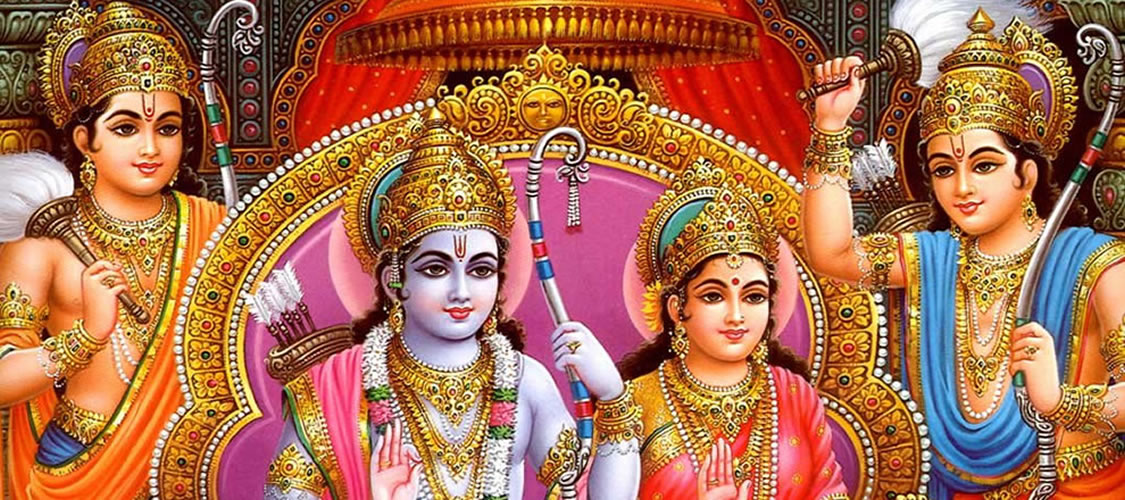uncommon nouns that end in !e
- Published in Barbara Gambin
- Written by mrw
- Permalink

We saw in wordends_in_e_part1 and in wordends_in_e_part1 that more than 99% of nouns in ending in e ÓżÅ are:
ŌåÉ m. -a- + 7sg **Gi ÓżÖÓż┐
ŌåÉ n. -a- + 7sg **Gi ÓżÖÓż┐
ŌåÉ n. -a- + 12du **au Óżö
ŌåÉ oddballs_e
ŌåÉ **aap ÓżåÓż¬ÓźŹ bases + 12du **au Óżö
ŌåÉ -i- Óżć bases + address (NOT -I- Óżł bases!)
Then there are i u Óżć Óżē bases, masculine (and sometimes neuter), with GE ÓżÖÓźć added.
Now, words ending in aye ÓżģÓż»Óźć ave ÓżģÓżĄÓźć may be m. (sometimes n.) bases in i u Óżć Óżē:
RSaye ÓżŗÓżĘÓż»Óźć ŌåÉ RSi- ÓżŗÓżĘÓż┐ m. + GE
guravE ÓżŚÓźüÓż░ÓżĄÓźć ŌåÉ guru- ÓżŚÓźüÓż░Óźü m. + GE
Examples:
zrii-guravE namaH ÓżČÓźŹÓż░ÓźĆÓżŚÓźüÓż░ÓżĄÓźć Óż©Óż«Óżā ŌåÉ guru- ÓżŚÓźüÓż░Óźü + GE ÓżÖÓźć.
RSyazRGgAya munaye ÓżŗÓżĘÓźŹÓż»ÓżČÓźāÓżÖÓźŹÓżŚÓżŠÓż» Óż«ÓźüÓż©Óż»Óźć ŌåÉ RSyazRGga- ÓżŗÓżĘÓźŹÓż»ÓżČÓźāÓżÖÓźŹÓżŚ + -GE ÓżÖÓźć + muni- Óż«ÓźüÓż©Óż┐ + -GE ÓżÖÓźć “to the holy man RSyazRGga ÓżŗÓżĘÓźŹÓż»ÓżČÓźāÓżÖÓźŹÓżŚ“
tryambakAya yuyutsave ÓżżÓźŹÓż░ÓźŹÓż»Óż«ÓźŹÓż¼ÓżĢÓżŠÓż» Óż»ÓźüÓż»ÓźüÓżżÓźŹÓżĖÓżĄÓźć ŌåÉ tryambaka- ÓżżÓźŹÓż░ÓźŹÓż»Óż«ÓźŹÓż¼ÓżĢ + -GE ÓżÖÓźć + yuyutsu- Óż»ÓźüÓż»ÓźüÓżżÓźŹÓżĖÓźü + -GE ÓżÖÓźć “to ziva ÓżČÓż┐ÓżĄ when he wanted to fight”
these bases change their i u Óżć Óżē into e o ÓżÅ Óżō before some of the endings, not just GE ÓżÖÓźć but also Gas ÓżÖÓżĖÓźŹ Gasi ÓżÖÓżĖÓż┐ jas Óż£ÓżĖÓźŹ and address su ÓżĖÓźü. Examples later.
Then there are bases in R like pitR Óż¬Óż┐ÓżżÓźā mAtR Óż«ÓżŠÓżżÓźā bhrAtR ÓżŁÓźŹÓż░ÓżŠÓżżÓźā. The Ge ÓżÖÓźć is added directly to these bases, making re Óż░Óźć. Which is confusing, because most of the words ending in re Óż░Óźć are of course bases in -ra- Óż░ with some other ending.
E ÓżÅ ŌåÉ -R- Óżŗ mfn. + GE ÓżÖÓźć
rE Óż░Óźć ŌåÉ -ra- Óż░ + Gi ÓżÖÓż┐
AcaSTa bharataH sarvaM mAtre ÓżåÓżÜÓżĘÓźŹÓż¤ ÓżŁÓż░ÓżżÓżā ÓżĖÓż░ÓźŹÓżĄÓżé Óż«ÓżŠÓżżÓźŹÓż░Óźć “bharata told everything to mother”
pitre sarvaM nyavedayat Óż¬Óż┐ÓżżÓźŹÓż░Óźć ÓżĖÓż░ÓźŹÓżĄÓżé Óż©ÓźŹÓż»ÓżĄÓźćÓż”Óż»ÓżżÓźŹ “told everything to father”
Most of the remaining nouns ending in e ÓżÅ are consonant bases of any gender with **GE ÓżÖÓźć added. Usually we can find the base just by removing the E:
suhRdE ÓżĖÓźüÓż╣ÓźāÓż”Óźć ŌåÉ suhRd- ÓżĖÓźüÓż╣ÓźāÓż”ÓźŹ mf. + GE ÓżÖÓźć
manasE Óż«Óż©ÓżĖÓźć ŌåÉ manas- Óż«Óż©ÓżĖÓźŹ n. + GE ÓżÖÓźć
trizirase ÓżżÓźŹÓż░Óż┐ÓżČÓż┐Óż░ÓżĖÓźć ŌåÉ triziras- ÓżżÓźŹÓż░Óż┐ÓżČÓż┐Óż░ÓżĖÓźŹ mfn. + GE ÓżÖÓźć
bhagavate ÓżŁÓżŚÓżĄÓżżÓźć ŌåÉ bhagavat- ÓżŁÓżŚÓżĄÓżżÓźŹ mn. + GE ÓżÖÓźć
Atmane ÓżåÓżżÓźŹÓż«Óż©Óźć ŌåÉ Atman- ÓżåÓżżÓźŹÓż«Óż©ÓźŹ m. + GE ÓżÖÓźć
parabrahmaNe Óż¬Óż░Óż¼ÓźŹÓż░Óż╣ÓźŹÓż«ÓżŻÓźć ŌåÉ parabrahman- Óż¬Óż░Óż¼ÓźŹÓż░Óż╣ÓźŹÓż«Óż©ÓźŹ n. + GE ÓżÖÓźć
vasiSThAya ca dhImate ÓżĄÓżĖÓż┐ÓżĘÓźŹÓżĀÓżŠÓż» ÓżÜ Óż¦ÓźĆÓż«ÓżżÓźć ŌåÉ dhImat- Óż¦ÓźĆÓż«ÓżżÓźŹ + GE “to the smart vasiSTha”
janakAya mahAtmane Óż£Óż©ÓżĢÓżŠÓż» Óż«Óż╣ÓżŠÓżżÓźŹÓż«Óż©Óźć ŌåÉ mahAtman- Óż«Óż╣ÓżŠÓżżÓźŹÓż«Óż©ÓźŹ + E ÓżÅ “to great-souled janaka”
tataz cikSepa zailAgraM nIlas trizirase tadA ÓżżÓżżÓżČÓźŹÓżÜÓż┐ÓżĢÓźŹÓżĘÓźćÓż¬ ÓżČÓźłÓż▓ÓżŠÓżŚÓźŹÓż░Óżé Óż©ÓźĆÓż▓ÓżĖÓźŹÓżżÓźŹÓż░Óż┐ÓżČÓż┐Óż░ÓżĖÓźć ÓżżÓż”ÓżŠ ŌåÉ triziras- ÓżżÓźŹÓż░Óż┐ÓżČÓż┐Óż░ÓżĖÓźŹ + GE ÓżÖÓźć “then nIla threw mountaintop to triziras ÓżżÓźŹÓż░Óż┐ÓżČÓż┐Óż░ÓżĖÓźŹ“
pradeyo rAghavAyeti sItA hanumate dadau Óż¬ÓźŹÓż░Óż”ÓźćÓż»Óźŗ Óż░ÓżŠÓżśÓżĄÓżŠÓż»ÓźćÓżżÓż┐ ÓżĖÓźĆÓżżÓżŠ Óż╣Óż©ÓźüÓż«ÓżżÓźć Óż”Óż”Óźī ŌåÉ hanumat- Óż╣Óż©ÓźüÓż«ÓżżÓźŹ + GE ÓżÖÓźć “saying this is for rAma, sItA ÓżĖÓźĆÓżżÓżŠ gave it to hanumAn Óż╣Óż©ÓźüÓż«ÓżŠÓż©ÓźŹ“
Bases build from the ending **matup Óż«ÓżżÓźüÓż¬ÓźŹ, like hanumat- Óż╣Óż©ÓźüÓż«ÓżżÓźŹ, appear to end in at ÓżģÓżżÓźŹ in most dictionaries, because they have at ÓżģÓżżÓźŹ before almost all the endings. But when they get the 1sg suffix su ÓżĖÓźü they change the at ÓżģÓżżÓźŹ into An ÓżåÓż©ÓźŹ, as we will see later. This is why in English it is better to spell “Hanuman”, not hanumat.
And then there is the word rAjJe Óż░ÓżŠÓż£ÓźŹÓż×Óźć that appears four times in the rAmAyaNa. It is made of base rAjan- Óż░ÓżŠÓż£Óż©ÓźŹ + Ge ÓżÖÓźć. When adding Ge ÓżÖÓźć to that base, the a Óżģ of rAjan Óż░ÓżŠÓż£Óż©ÓźŹ vanishes, then the n Óż©ÓźŹ turns into J Óż×ÓźŹ for ease of pronunciation.
rAjan Óż░ÓżŠÓż£Óż©ÓźŹ + Ge ÓżÖÓźć ŌåÆ rAjne Óż░ÓżŠÓż£ÓźŹÓż©Óźć ŌåÆ rAjJe Óż░ÓżŠÓż£ÓźŹÓż×Óźć
sa te tadA namaskRtvA rAjJe dazarathAya ca ÓżĖ ÓżżÓźć ÓżżÓż”ÓżŠ Óż©Óż«ÓżĖÓźŹÓżĢÓźāÓżżÓźŹÓżĄÓżŠ Óż░ÓżŠÓż£ÓźŹÓż×Óźć Óż”ÓżČÓż░ÓżźÓżŠÓż» ÓżÜ ŌåÆ “bowed to king dazaratha Óż”ÓżČÓż░Óżź“
Exercise:
At least half of the following words have a i u R Óżć Óżē Óżŗ base or a consonant base plus ending GE ÓżÖÓźć. Try to find one base of each.
laGkAdhipataye parivRddhaye gaurave bhrAtre Rte yugakSaye ripave prajApate rAghave saumitraye rAksase tapase haimavate RSaye rakSase vAyusUnave vinizcaye putre ikSvAkave mahAmate Óż▓ÓżÖÓźŹÓżĢÓżŠÓż¦Óż┐Óż¬ÓżżÓż»Óźć Óż¬Óż░Óż┐ÓżĄÓźāÓż”ÓźŹÓż¦Óż»Óźć ÓżŚÓźīÓż░ÓżĄÓźć ÓżŁÓźŹÓż░ÓżŠÓżżÓźŹÓż░Óźć ÓżŗÓżżÓźć Óż»ÓźüÓżŚÓżĢÓźŹÓżĘÓż»Óźć Óż░Óż┐Óż¬ÓżĄÓźć Óż¬ÓźŹÓż░Óż£ÓżŠÓż¬ÓżżÓźć Óż░ÓżŠÓżśÓżĄÓźć ÓżĖÓźīÓż«Óż┐ÓżżÓźŹÓż░Óż»Óźć Óż░ÓżŠÓżĢÓźŹÓżĖÓżĖÓźć ÓżżÓż¬ÓżĖÓźć Óż╣ÓźłÓż«ÓżĄÓżżÓźć ÓżŗÓżĘÓż»Óźć Óż░ÓżĢÓźŹÓżĘÓżĖÓźć ÓżĄÓżŠÓż»ÓźüÓżĖÓźéÓż©ÓżĄÓźć ÓżĄÓż┐Óż©Óż┐ÓżČÓźŹÓżÜÓż»Óźć Óż¬ÓźüÓżżÓźŹÓż░Óźć ÓżćÓżĢÓźŹÓżĘÓźŹÓżĄÓżŠÓżĢÓżĄÓźć Óż«Óż╣ÓżŠÓż«ÓżżÓźć
Exercise 1: find all words in the list of failures from previous exercise that have i Óżć bases or Ap ÓżåÓż¬ÓźŹ bases. Find them.
Exercise 2: find some word in the success list that can come from an i base too.